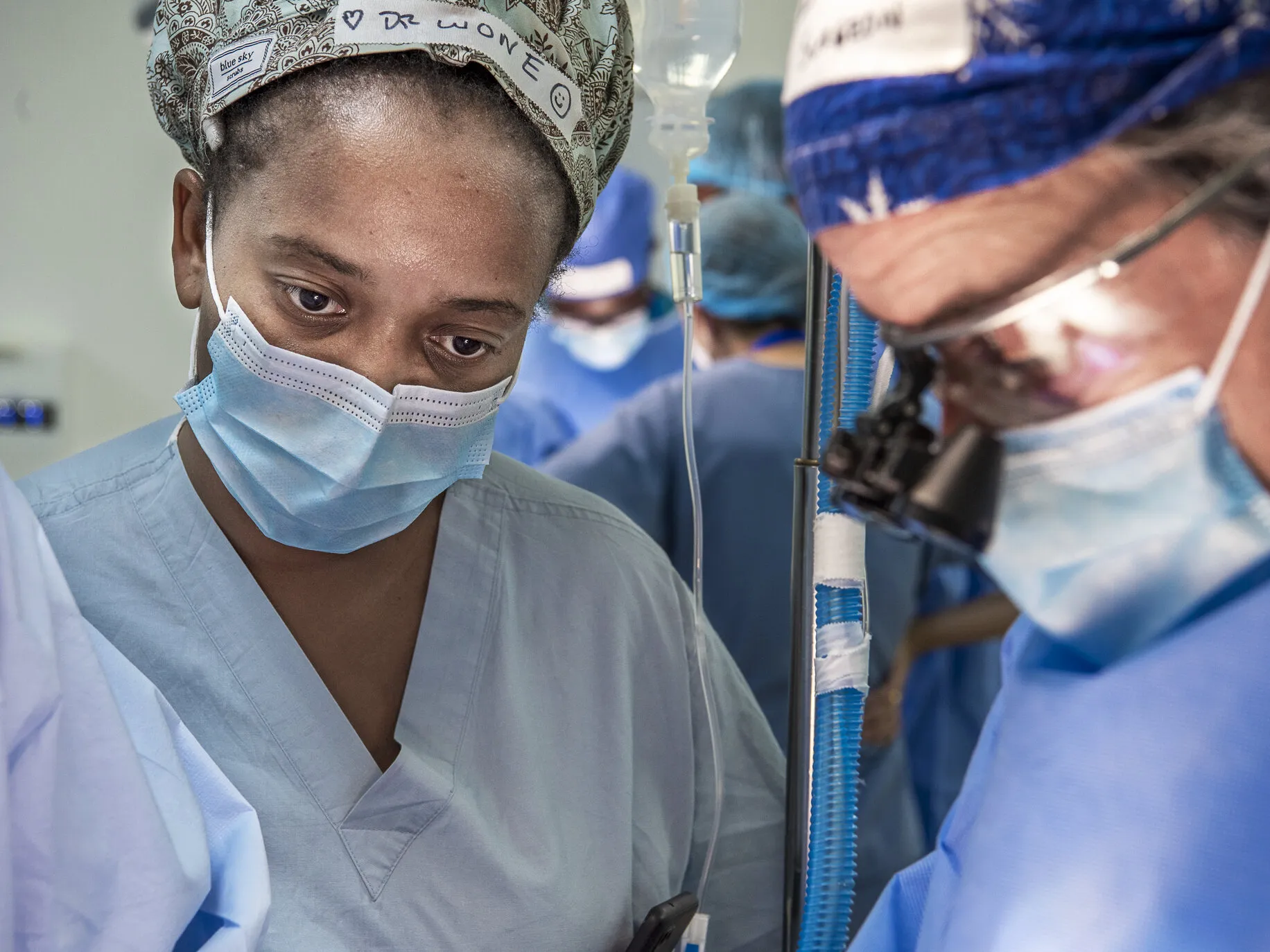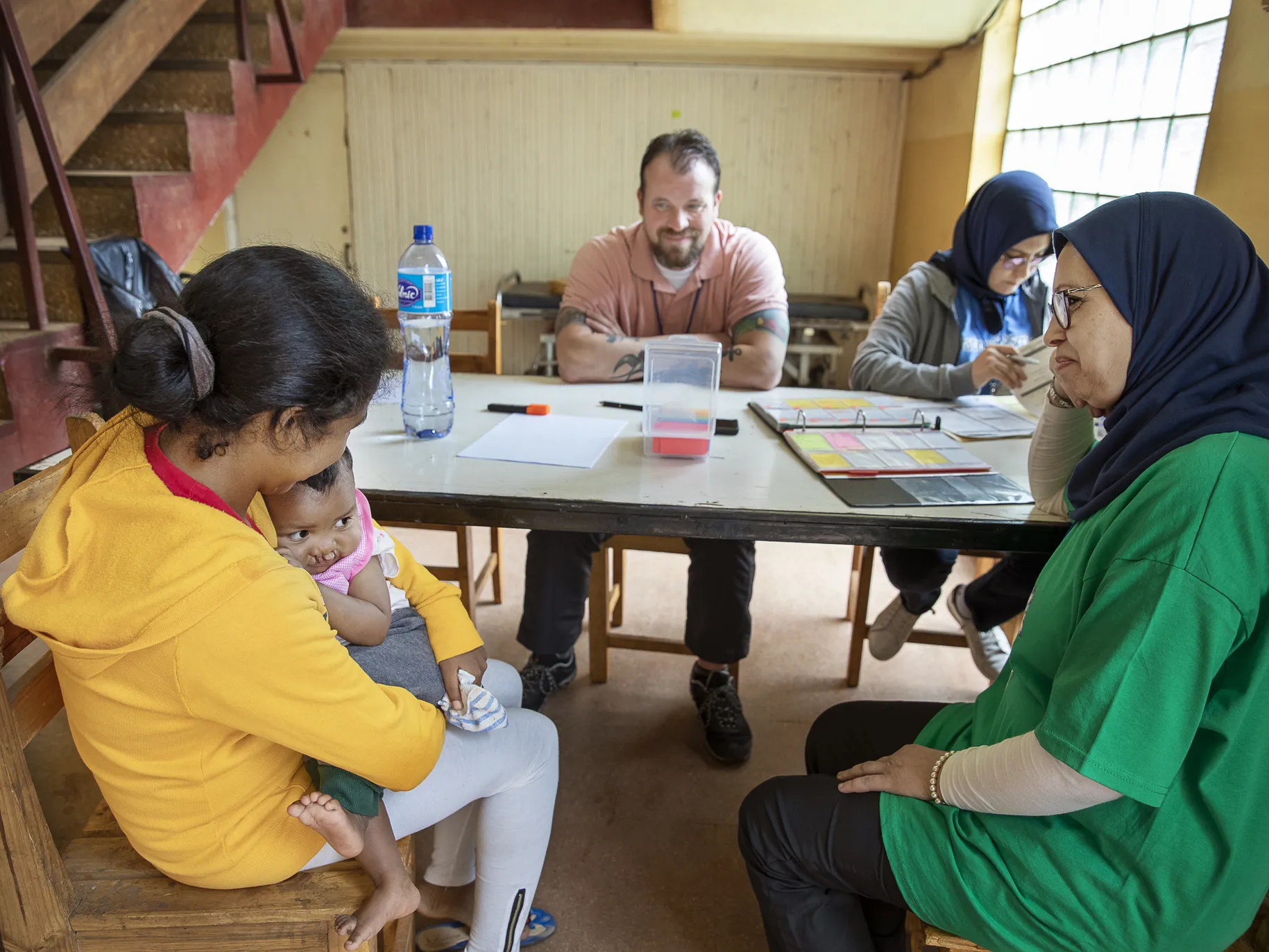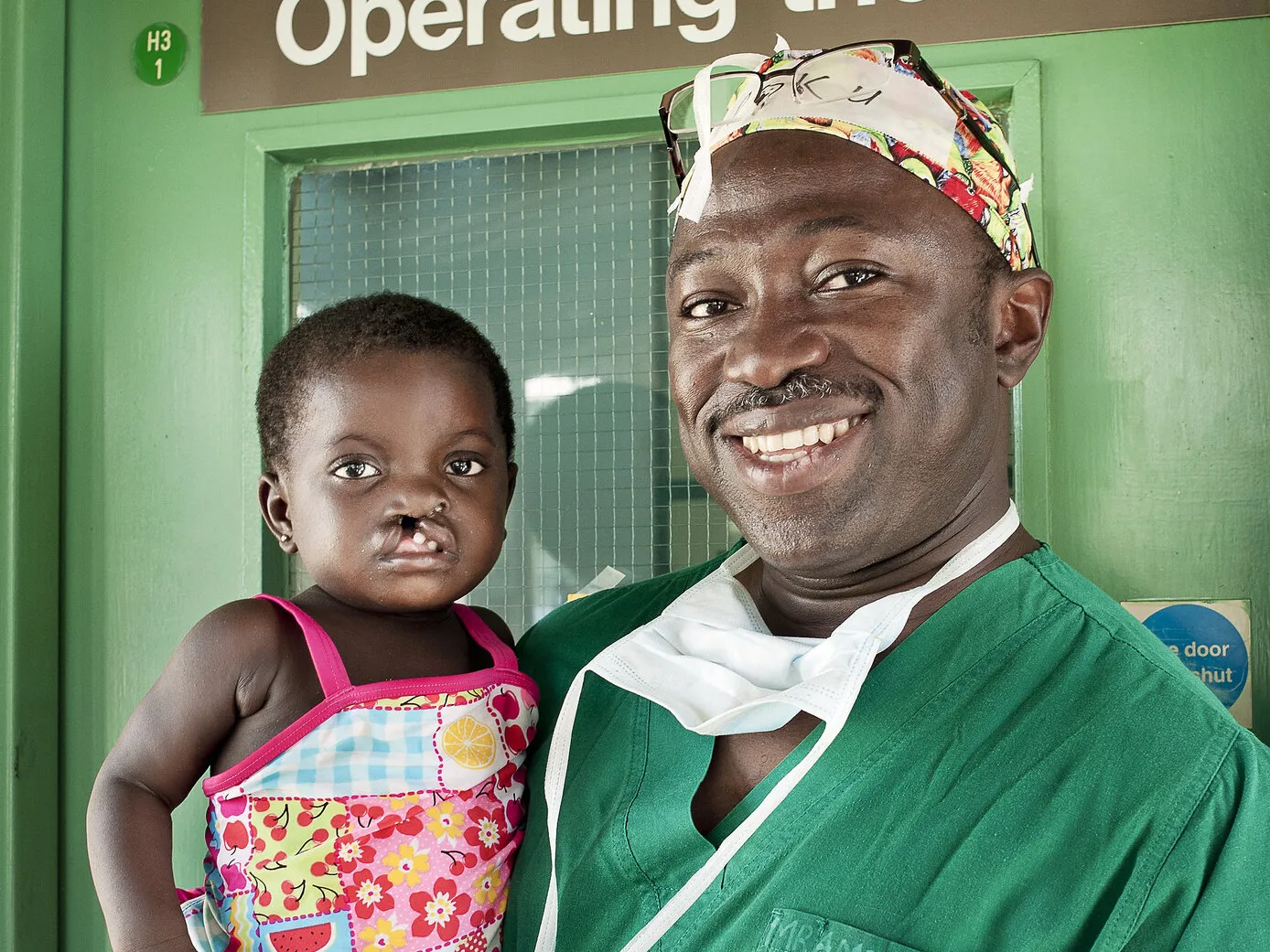Care Providers
Advancing Safe Surgery in India: The Durgapur Cleft Center
In the countryside of West Bengal, India, a neighborhood in the farming village of Amdole lies on the banks of a pond lined with trees and small brick and clay homes.
A narrow and dusty road winds between the houses, bending toward an expansive stretch of farmland. Ox-drawn carts or motorbikes traversing the town and fields occasionally interrupt the serenity.
Here, 3-year-old Shyam frolics with his siblings and their friends. His loving mother and father, Rahki and Milon, keep a watchful eye on the kids from their clay patio that overlooks the pond.
Though he was born with a cleft lip, which can present many health risks when left untreated, Shyam hasn’t yet experienced health problems or discrimination from his playmates and neighbors in this tight-knit community.
Regardless, he should have received cleft surgery within the first year of his life to ensure his long-term physical and emotional well-being. However, his parents were misinformed by doctors and nurses at the hospital where Shyam was born. They told the parents that he couldn’t receive surgery until he was at least 5 years old.
Three years would pass before Rahki and Milon would learn about Operation Smile India and its cleft center in Durgapur, West Bengal.

“In the house next door there is a doctor whom we call Rajakaka,” Rahki says. “He said, ‘Tomorrow, there is (an Operation Smile patient recruitment) camp in Murarai. You guys should come with your son.’”
Operation Smile India’s ability to reach Shyam’s parents is the foundation of its approach to improving access to safe cleft surgery for people living in this region’s remote farming communities.
The Durgapur Cleft Center, funded by a grant from the Baxter International Foundation, is housed within IQ City Narayana Multispecialty Hospital and operates through a partnership with the Inga Health Foundation and the hospital.
“There is a great need for health care here. There are just a couple of decent hospitals. No one is doing cleft care here,” says Abhishek Sengupta, Operation Smile India’s executive director and regional director for India, Russia and Italy. “At the same time, (Durgapur) is a city which is very close to the surrounding states of Jharkhand, as well as other districts in West Bengal where health care is even worse than Durgapur.
“It gives us access to a geography which we would not have had we’d been in a city like Kolkata or some other urban city.”

And that access is made possible through a community-focused patient recruitment strategy with the goal of reaching parents like Rahki and Milon whose children need essential cleft surgery and long-term follow-up care like speech therapy, dentistry and orthodontics.
“The way patient recruitment camps work is we have a team here; (they) will normally work with local NGOs and community-based organizations,” Abhishek says. “The reason we use local organizations is because people in that area know them. So, it’s much easier to build rapport and build trust with the patients if we go through them.”
Rahki, Milon and Shyam arrive at the patient recruitment camp in Murarai, which is only about 15 kilometers from their home. The local Lion’s Club hosts the camp, and dozens of patients and their families from surrounding communities arrive to meet with the Operation Smile India team led by Safir Rehman “Mithu” Seikh.
The trust that Rahki places in Operation Smile is affirmed through the world-class care delivered by the center’s staff. The model used by the Durgapur center differs from most of the other 30 care centers that Operation Smile operates in 16 countries, which are primarily volunteer-driven. Here, Operation Smile India employs surgeons, anesthesiologists, orthodontists, dentists and speech therapists while utilizing nurses and pediatricians through its partnership with the host hospital.
The team’s goal is to provide patients with the complete care that they deserve.

“These children need comprehensive care,” says Dr. Partha Sadhu, the Durgapur center’s lead cleft surgeon. “Because, time to time, the patient needs follow-up, needs necessary surgical intervention, dental interventions, speech pathologist intervention, everything.
“So that is why, other than working as an isolated surgeon, it is always better to work in a team.”
Abhishek adds, “You have to keep following up. A child might need two or three surgeries. A child almost always needs prolonged speech therapy. You need orthodontic care, because, many times, you need to do a lot of work with the facial bone structure before the child is even ready for surgery. A lot of these kids are malnourished, so we need to have a proper nutrition program so the child is healthy enough to get surgery.
“You need to provide comprehensive and complete care from the cradle until the end of growth.”

After a month of anticipation, Shyam’s family arrives at the center. They settle into the patient ward before his comprehensive health evaluation begins. Shyam is found to be in good health and is placed on the schedule for surgery.
After an operation that lasted around an hour, the course of his life is forever changed.
Much like this is just the beginning of Shyam’s care journey, the center is also poised to continue to grow once the COVID-19 pandemic subsides. Plans are in the works for strengthening its community outreach programs beyond patient recruitment to bring nutrition programs, speech therapy, post-operative care and, eventually, surgeries even closer to families like Shyam’s.
“When we started this, we wanted to start small with the center. We started by advancing safe surgery, then we started adding the other components,” Abhishek said. “The next step is taking things to the community – to connect the last mile for our patients.”












